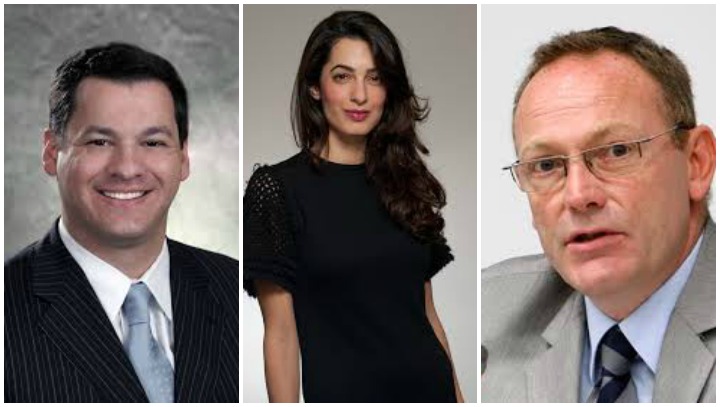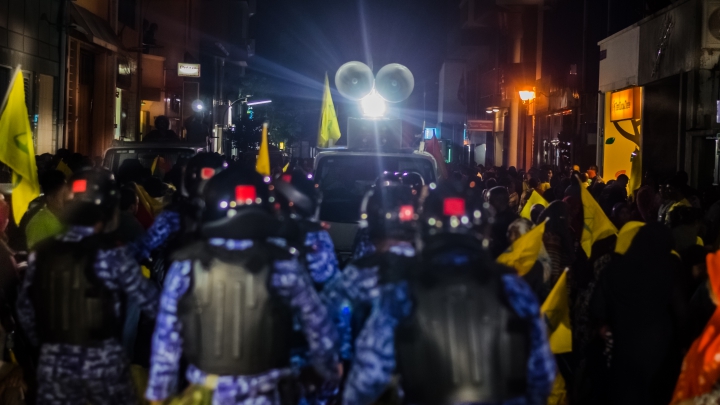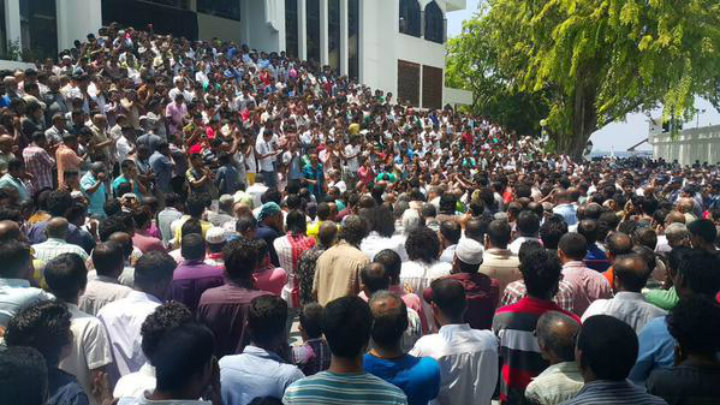Jailed opposition leader Mohamed Nasheed has unveiled an international legal team including heavyweight human rights lawyers such as Amal Clooney.
Clooney, who has advised the UN and is the wife of Hollywood actor George Clooney, is accompanied by Jared Genser, the founder of the renowned campaign group for political prisoners Freedom Now, and Ben Emmerson, former UN rights chief on counter-terrorism and human rights.
Nasheed was sentenced to 13 years in jail last month on terrorism charges in a trial heavily criticised by observers including the UN and Amnesty International for its apparent lack of due process.
The former president hopes to increase international pressure on President Abdulla Yameen, who has so far remained silent in the face of the opposition’s daily protests, and calls for dialogue and a presidential pardon.
“I am very pleased to have such an extraordinary team agree to take up my legal defence internationally,” he said in a statement today.
Nasheed said he is determined to “ensure the world understands the injustice of my detention and the broader suffering of the Maldivian people under President Abdulla Yameen.”
President Yameen maintains he has no role in the trial, but called on the international community to respect the Criminal Court’s verdict.
The international team will push for Nasheed’s “freedom from arbitrary detention” through international lobbying and legal mechanisms such as the UN working group on arbitrary detention, the former president’s domestic legal team says.
The working group’s decision on Nasheed’s detention will affect the international community’s policy towards the Maldives, and would inform decisions on possible sanctions, they added.
Genser has represented Nobel Peace Prize laureates Aung San Suu Kyi and Liu Xiaobo, while Clooney has counseled political prisoners such as the former Prime Minister of Ukraine, Yulia Tymoshenko and Al Jazeera journalist Mohamed Fahmy.
Emmerson, meanwhile, is currently the British judge on international tribunals on Rwanda and the former Yugoslavia.
Nasheed on March 19 announced he would not seek an appeal after the Criminal Court failed to release required case documents on time, and said he is now seeking a political solution involving president Yameen.
The High Court still says Nasheed can appeal, claiming judges are authorized to accept late appeals if a “reasonable justification” is given, but Nasheed’s lawyers say Supreme Court has taken away the discretionary powers to judges in a new ruling in January.
Nasheed’s Maldivian Democratic Party describes Nasheed’s conviction as part of a broader government plan to silence dissent, a claim Yameen denies.
Since Nasheed’s conviction, former defence minister Mohamed Nazim has been sentenced to 13 years in jail on smuggling weapons and ruling party MP Ahmed Nazim was yesterday sentenced to 25 years in prison on corruption charges.






